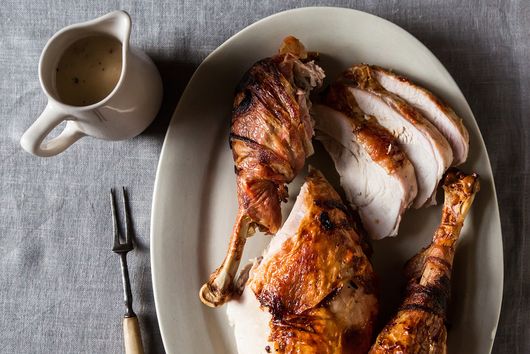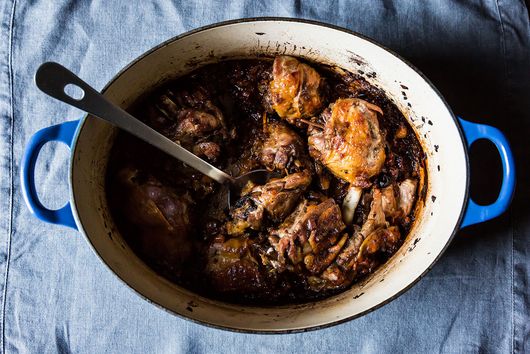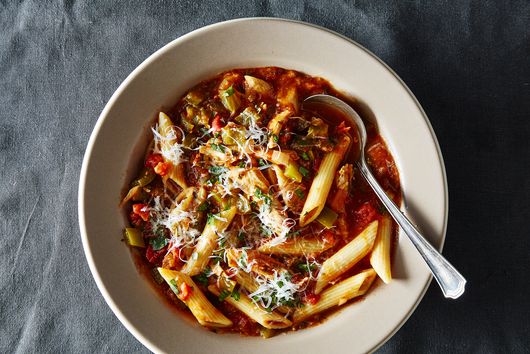Flatten The Bird
★★★★★
PREP TIME
20 minutes
COOK TIME
30 minutes
MAKES
1
Ingredients
one
3-pound chicken (see note*)
2 teaspoons
fine sea salt (see note**)
1 teaspoon
ground white pepper
4 sprigs
fresh thyme, rosemary, or other herbs of your choosing
Instructions
- Flatten and marinate the bird according to the instructions in the video.
- Lay the bird meat side up first and evenly sprinkle half of the salt and pepper on top. Flip it over, skin side up now, and evenly sprinkle on the rest of the seasoning. Let the bird marinate and air-dry uncovered in the fridge for at least 2 hours, or up to 8 hours.
- In a cold, dry, flat, nonstick skillet that will fit the entire spread-out chicken, lay the bird skin side down, making sure the skin is spread out without any folds. Set the skillet over medium-low heat (on a scale of 1 to 10, I would say a 3.5) on a burner that is wide rather than focused in the center, then partially cover the skillet with a lid.
- The skin will slowly render down and crisp up, resulting in the chicken eventually cooking in its own fat. It won't need much babysitting and should take about 25 to 28 minutes for the skin to become evenly golden brown, blistered, and crispy. If not, turn up the heat a bit in the end to achieve this. In the last 5 minutes, add the garlic and thyme, which will infuse the oil and flavor the chicken as well. When the skin is fully crisped up, the meat side should be about 50 to 60 percent cooked through, looking slightly opaque.
- Now flip the chicken over and cook the meat side for another 3 minutes. If your chicken is bigger than 3 pounds, you may need a bit more time. Finding the sweet spot when the meat is *just* cooked through but not a minute longer is paramount to its final juiciness and succulence.
- Let the chicken rest for a couple minutes before serving. Do not forgo the extremely flavorful but often overlooked meat along the backbone, collecting deliciousness from the neck meat down to the oysters by the thigh area and a strip of crispy skin on the entire runway.
- * My chicken was relatively small, about 3 pounds. You can certainly use a larger chicken; just adjust the amount of seasoning and the cooking time accordingly.
- ** Avoid any garlic or onion powder in the seasoning, which will burn easily and become sticky. Keep the seasonings simple—just salt and pepper—and introduce other aromatics later on in the cooking process.





